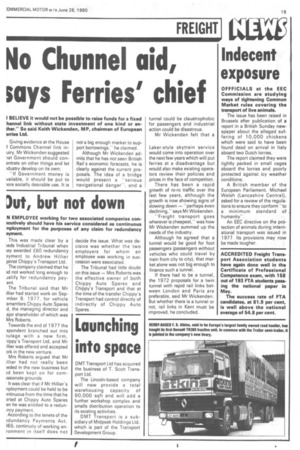Not, but not down
Page 21

If you've noticed an error in this article please click here to report it so we can fix it.
N EMPLOYEE working for two associated companies conmutively should have his service considered as continuous rnployment for the purposes of any claim for redundancy Elyment.
This was made clear by a ;eds Industrial Tribunal when ley awarded £60 redundancy 3yment to Andrew Hillier jainst Chippy's Transport Ltd. The company claimed that he 3e1 not worked long enough to J al if y for redundancy payent.
The Tribunal said that Mr illier had started work on Sepmber 9, 1977, for vehicle smantlers Chippy Auto Spares d, the managing director and ajor shareholder of which was Mrs Roberts.
Towards the end of 1977 the spondent branched out into lulage with a new firm, lippy's Transport Ltd, and Mr was offered and accepted ark in the new venture.
Mrs Roberts argued that Mr illier had not really been :eded in the new business but id been kept on for cornissionate grounds.
It was clear that if Mr Hillier's nployment could be held to be intinuous from the time that he 3rted at Chippy Auto Spares en he was entitled to a redunincy payment.
According to the tenets of the 3dundancy Payments Act, 165, continuity of working enronment in itself does-not decide the issue. What was decisive was whether the two employers for whom an employee was working in succession were associated.
The Tribunal had little doubt on this issue — Mrs Roberts was the effective owner of both Chippy Auto Spares and Chippy's Transport and that at the time of the transfer Chippy's Transport had control directly of indirectly of Chippy Auto Spares.




































































































































